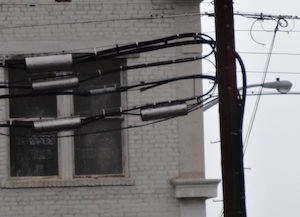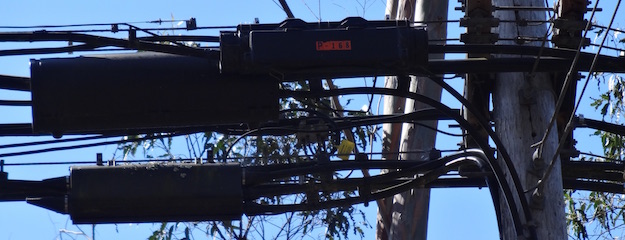Frontier's California takeover is on track for approval today

Not a Californian look, but hey, it beats Verizon’s finger.
No glitches for Frontier’s purchase of Verizon’s wireline phone systems in California. At this point the deal appears headed for approval without discussion: it’s on the California Public Utilities Commission’s consent agenda for today’s meeting and no one has asked that it be bumped to later, or taken off the consent agenda and taken up as a discussion item. The CPUC is the last major hurdle for the deal.… More



![By Jim Pickerell, 1936-, Photographer (NARA record: 4588217) (U.S. National Archives and Records Administration) [Public domain], via Wikimedia Commons](https://www.tellusventure.com/images/2015/11/double_parking.jpg)

![By User Minesweeper on en.wikipedia (Minesweeper) [GFDL (https://www.gnu.org/copyleft/fdl.html) or CC-BY-SA-3.0 (https://creativecommons.org/licenses/by-sa/3.0/)], via Wikimedia Commons](https://www.tellusventure.com/images/2015/11/eastshore_traffic.jpg)
![By Brian Cantoni (Flickr) [CC BY 2.0 (https://creativecommons.org/licenses/by/2.0)], via Wikimedia Commons](https://www.tellusventure.com/images/2015/11/instant_replay.jpg)
![By National Institute for Occupational Safety and Health (NIOSH) from USA (Highway construction workers using concrete saws) [Public domain], via Wikimedia Commons](https://www.tellusventure.com/images/2015/11/highway_construction_workers_using_concrete_saws.jpg)
![By Stephen zeigler (Own work) [CC BY-SA 4.0 (https://creativecommons.org/licenses/by-sa/4.0)], via Wikimedia Commons](https://www.tellusventure.com/images/2015/11/city_limit.jpg)